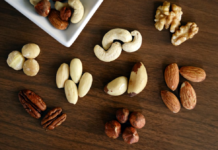In today’s fast-paced world, busy professionals often find it challenging to prioritize healthy eating amidst hectic schedules, demanding workloads, and limited time for meal preparation. However, adopting smart strategies, planning ahead, and making conscious choices can make healthy eating a manageable and sustainable part of a busy professional’s lifestyle. This article explores practical tips, nutritious food choices, and time-saving techniques to support healthy eating habits for busy professionals.
Importance of Healthy Eating
- Sustained Energy Levels: Consuming nutritious meals and snacks fuels your body with essential nutrients, vitamins, and minerals, providing sustained energy throughout the day.
- Enhanced Cognitive Function: A well-balanced diet rich in nutrients like omega-3 fatty acids, antioxidants, and complex carbohydrates supports brain health, memory, focus, and cognitive performance.
- Improved Productivity and Efficiency: Eating nutrient-dense foods supports overall well-being, mental clarity, and productivity, allowing you to perform optimally at work and in daily activities.
- Weight Management: Making healthy food choices and practicing portion control can contribute to weight management, preventing weight gain and promoting a healthy body composition.
- Disease Prevention: A diet high in fruits, vegetables, whole grains, lean proteins, and healthy fats reduces the risk of chronic diseases such as heart disease, diabetes, and certain cancers.
Practical Tips for Busy Professionals
- Plan Ahead: Take time to plan your meals and snacks for the week, create a grocery list, and prep ingredients in advance to save time during busy weekdays.
- Batch Cooking: Prepare large batches of nutritious meals like soups, stews, salads, or grain bowls that can be portioned and enjoyed throughout the week.
- Healthy Grab-and-Go Options: Stock your pantry and fridge with healthy grab-and-go options such as pre-cut vegetables, fruit, nuts, seeds, yogurt, hummus, whole-grain crackers, and lean protein sources like boiled eggs or grilled chicken.
- Pack Your Lunch: Bring homemade lunches to work in reusable containers to avoid relying on fast food or unhealthy takeout options.
- Smart Snacking: Choose nutrient-dense snacks like fresh fruit, Greek yogurt, whole-grain crackers with nut butter, veggie sticks with hummus, or homemade trail mix for sustained energy and satiety between meals.
Nutritious Food Choices
- Lean Proteins: Incorporate lean protein sources such as chicken breast, turkey, fish, tofu, legumes, and low-fat dairy into meals for muscle repair, satiety, and energy.
- Colorful Fruits and Vegetables: Aim to fill half your plate with colorful fruits and vegetables, which are rich in vitamins, minerals, fiber, and antioxidants.
- Whole Grains: Choose whole grains like quinoa, brown rice, oats, whole wheat bread, and whole grain pasta for sustained energy, fiber, and essential nutrients.
- Healthy Fats: Include sources of healthy fats such as avocado, nuts, seeds, olive oil, and fatty fish like salmon or sardines for heart health and brain function.
- Hydration: Stay hydrated throughout the day by drinking water, herbal teas, infused water, or sparkling water with citrus slices to support digestion, hydration, and overall well-being.
Time-Saving Techniques
- Cook Once, Eat Twice: Repurpose leftovers from dinner as lunch for the next day to save time and reduce food waste.
- Slow Cooker or Instant Pot Meals: Utilize slow cookers or Instant Pots to prepare easy and flavorful meals with minimal effort, perfect for busy weekdays.
- Pre-Portioned Snacks: Portion snacks like nuts, trail mix, or cut fruits and veggies into individual servings for convenient grab-and-go options.
- Healthy Meal Delivery Services: Consider subscribing to healthy meal delivery services that offer nutritious, pre-made meals tailored to your dietary preferences and busy lifestyle.
- Time-Saving Kitchen Gadgets: Invest in time-saving kitchen gadgets such as a food processor, blender, or vegetable chopper to streamline meal preparation and cooking.
Mindful Eating Practices
- Eat Mindfully: Practice mindful eating by savoring each bite, chewing slowly, and paying attention to hunger and fullness cues to prevent overeating.
- Avoid Multitasking: Minimize distractions while eating, such as working at your desk or watching TV, to fully enjoy and appreciate your meals.
- Listen to Your Body: Tune in to your body’s hunger and satiety signals, and honor your cravings with balanced, nutritious choices.
- Practice Moderation: Enjoy occasional treats or indulgences in moderation, focusing on overall balance and consistency in your eating habits.
Incorporating Physical Activity
- Prioritize Movement: Incorporate regular physical activity into your daily routine, whether it’s a workout session, brisk walk, yoga class, or active break during work hours.
- Desk Exercises: Incorporate simple desk exercises, stretches, or yoga poses to break up sedentary periods and boost energy levels throughout the day.
- Outdoor Breaks: Take advantage of outdoor breaks or lunchtime walks in nature to refresh your mind, enhance creativity, and reduce stress.
Seeking Professional Guidance
- Consult a Registered Dietitian: Consider consulting with a registered dietitian or nutritionist for personalized guidance, meal planning, and dietary recommendations based on your goals, preferences, and nutritional needs.
- Health and Wellness Programs: Explore workplace wellness programs, online resources, or fitness apps that offer nutrition education, healthy eating tips, and support for busy professionals.

















